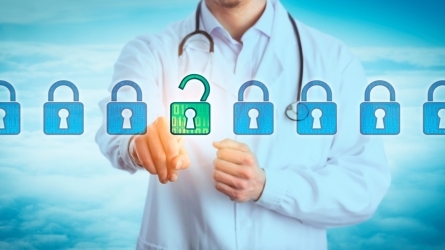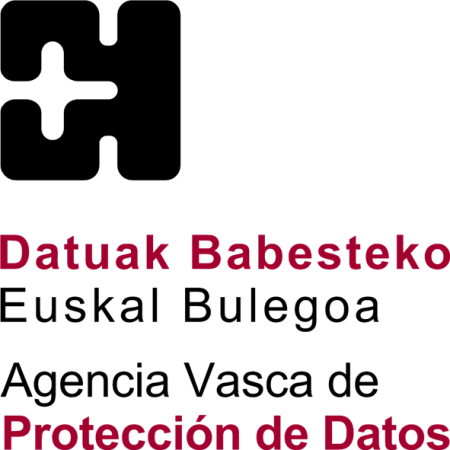
Data protection in the European Health Data Space
The consequences of the application of the General Data Protection Regulation will be addressed, but also the European Data Governance Regulation and the Directive on network security and information systems in the Union.
Description
The EEDS will entail some specific challenges in the field of health for access to health data and for their electronic exchange. Its first beneficiaries will be European citizens, who will be able to have and manage their health data electronically. But the EEDS also seeks to provide facilities for the exchange and access by researchers, innovators and policy makers, who will also be able to decide on the use of these health data electronically. Accesses and uses that must be carried out in a reliable, secure manner and, above all, that respects the privacy of the people involved. The promotion of the interoperability of electronic health data and its secondary use aims to promote an EU internal market for electronic health data.
The EEDS involves the processing of sensitive personal data, so it falls fully within the scope of the GDPR. As a primary use, natural persons, when they travel to another member country of the Union, may take their electronic health data with them, or share their electronic health data with third-party operators in the health sector, selected by the users, in the country of destination. Market operators in the healthcare sector (whether they are providers of healthcare or digital services and products) will be obliged to facilitate these exchanges, always under the control of the interested parties.
But for secondary uses of eHealth data, including public policy and patient safety, but also innovation, research, or personalized medicine, there is no immediate stakeholder control. . For this reason, it is necessary to guarantee full protection of the fundamental right to data protection, applying solid guarantees and adequate security measures, which guarantee a high level of transparency, accountability and security in data processing. The coordination of these bodies at EU level and the enshrining of their activities in a common framework will ensure a level playing field. This will support cross-border analysis of electronic health data for research, innovation, official statistics, policy making and regulation.
Objectives
Get to know different specialized points of view, both from the health field and from the perspective of data protection, on the implications of the Regulation on the European Health Data Space.
Confront points of view and seek an open debate in order to identify possible edges and points of convergence on the issue.
Activity directed to
- University student
- Teachers
- Professionals
Program
27-06-2023
Acreditación y registro de asistentes presenciales. Admisión de asistentes en línea
Presentation by the Director of the activity
- Margarita Uria Etxebarria | Agencia Vasca de Protección de Datos - Directora
“La Protección de Datos en el Espacio Europeo de Datos Sanitarios“
Garantías en el tratamiento de datos personales en la Investigación Sanitaria transfronteriza
- Jesús Rubí Navarrete | Agencia Española de Protección de Datos - Coordinador de la Unidad de Apoyo a la Presidencia
“El Espacio Europeo de Datos Sanitarios y la Ley de Inteligencia Artificial“
Intersecciones entre distintas propuestas europeas de Reglamento
- Guillermo Lazcoz Moratinos | CIBERER-ISCIII (Centro de Investigación Biomédica en Red para el proyecto IMPaCT-Genómica del Instituto de Salud Carlos III) - Investigador jurídico
“El Espacio Europeo de Datos Sanitarios: Una oportunidad para la investigación biomédica“
Usos secundarios y disponibilidad de la información clínica en entornos seguros
- Amelia Martín Uranga | Farmaindustria - Directora asociada de investigación clínica y traslacional
Pausa café
Round table: “Mesa Redonda“
- Margarita Uria Etxebarria | Agencia Vasca de Protección de Datos - Directora (Moderator)
- Jesús Rubí Navarrete | Agencia Española de Protección de Datos - Coordinador de la Unidad de Apoyo a la Presidencia
- Guillermo Lazcoz Moratinos | CIBERER-ISCIII (Centro de Investigación Biomédica en Red para el proyecto IMPaCT-Genómica del Instituto de Salud Carlos III) - Investigador jurídico
- Amelia Martín Uranga | Farmaindustria - Directora asociada de investigación clínica y traslacional
Closing session
- Margarita Uria Etxebarria | Agencia Vasca de Protección de Datos - Directora
Directors

Margarita Uria Etxebarria
Agencia Vasca de Protección de Datos, Directora
Directora de la Agencia Vasca de Protección de Datos FORMACIÓN Licenciada en Derecho, Universidad de Deusto (1975) CARRERA PROFESIONAL Abogada en ejercicio (1975-1980) Funcionaria: Letrada de Servicios Jurídicos del Gobierno Vasco Directora de lo Contencioso (1984-1996) Diputada a Cortes por Bizkaia (Grupo Parlamentario Vasco) VI Legislatura (1996- 2000) Diputada a Cortes por Bizkaia (G.P. Vasco) VII Legislatura (2000-2004) Diputada a Cortes por Bizkaia (G.P. Vasco) VIII Legislatura (2004-2008) Vocal del Consejo General del Poder Judicial (2008-2013) Asesora en la Secretaría General de Acción Exterior (2013-2016) Directora de la Agencia Vasca de Protección de Datos (2016-Actualidad)
Secretario General en funciones de la Agencia Vasca de Protección de Datos Licenciado en Informática (UPV-EHU. Donostia, 1.982). CISA (Certified Information Systems Auditor) (ISACA, 2012). Funcionario de Carrera de la Comunidad Autónoma del País Vasco. Grupo A, Cuerpo Superior Facultativo de Informática. 2022............: AVPD – Agencia Vasca de Protección de Datos. Secretario General 2018..2022: AVPD – Agencia Vasca de Protección de Datos. Delegado de Protección de Datos. 2005..2018: AVPD – Agencia Vasca de Protección de Datos. Responsable de Registro y Auditoría de Ficheros. 2000-2005: Consejo General del Poder Judicial. Jefe de la Sección de Informática Judicial. 1990-1999: Departamento de Justicia (EJ-GV). Jefe del Servicio de Informática Judicial. 1985-1989: EUSTAT, Instituto Vasco de Estadística. Técnico de Sistemas de Información Estadística. 1983-1985: UPV-EHU, Facultad de Informática de Donostia. Profesor Colaborador (en Exclusiva). 1983: IKEI (Ikerketarako Euskal Institutoa - Instituto Vasco de Estudios e Investigación. Técnico de Sistemas y Programación.
Speakers

Guillermo Lazcoz Moratinos
GUILLERMO LAZCOZ MORATINOS (CIBERER-ISCIII) Doctor en Derecho por la Universidad del País Vasco (UPV/EHU) Investigador jurídico en el Centro de Investigación Biomédica en Red - Proyecto IMPaCT-Genómica del Instituto de Salud Carlos III Premio de investigación Emilio Aced 2022 de la Agencia Española de Protección de Datos Sus líneas de trabajo se centran en la protección de datos en los ámbitos de la asistencia sanitaria y en la investigación biomédica, con especial atención al desarrollo de nuevas tecnologías e inteligencia artificial. En su tesis doctoral trabajó en la gobernanza y supervisión humana de la toma de decisiones basada en la elaboración de perfiles.

Amelia Martín Uranga
Doctora en Derecho. Directora asociada de investigación clínica y traslacional de FarmaIndustria Responsable de la Plataforma Española Medicamentos Innovadores (cooperación público-privada para el fomento de la investigación biomédica en España - Proyecto BEST de excelencia en investigación clínica). Miembro de los Grupos de Trabajo de Investigación y de Protección de Datos de EFPIA (Federación europea de la industria farmacéutica) - Consorcio IMI de colaboración público-privada - Proyecto DO-IT - Big Data for Better Outcomes. Miembro del Comité asesor de ética del proyecto IMI-EHDEN (red federada de fuentes de datos, hospitales y centros de atención primaria, en toda Europa) Investigadora en la Cátedra Interuniversitaria de Derecho y Genoma Humano, de la que es colaboradora. Ponente habitual en numerosos Congresos, Seminarios, Jornadas, nacionales e internacionales, desde hace 20 años, con publicaciones diversas sobre temas relativos a la biotecnología y el derecho. Docente en cursos de postgrados de universidades españolas y escuelas de negocio.

Jesús Rubí Navarrete
Jesús Rubí Navarrete • Vocal Coordinador de la Unidad de Apoyo y Relaciones Institucionales - Agencia Española de Protección de Datos (AEPD) Formación Académica • Licenciado en Derecho por la Universidad Complutense de Madrid. • Funcionario de carrera perteneciente al Cuerpo Superior de Técnicos de la Administración de la Seguridad Social. Experiencia profesional • 2005-2021: Adjunto a la Dirección de la AEPD • 2002-2005: Subdirector General de Inspección de la AEPD • 1999-2002: Adjunto al Director de la AEPD • 1995-1999: Vocal del Tribunal de Defensa de la Competencia. • 1994-1995: Subdirector General de la Asesoría Jurídica del Tribunal de Cuentas. • 1989-1994: Director General de Relaciones con las Cortes. • 1986-1988: Secretario General Técnico del Ministerio de Relaciones con las Cortes. • 1983-1986: Director del Gabinete del Ministro de Justicia.
Registration fees
| Face-to-face | Until 31-05-2023 | Until 27-06-2023 |
|---|---|---|
| 25,00 EUR | 33,00 EUR | |
| - | 47,00 EUR | |
| - | 40,00 EUR | |
| - | 33,00 EUR |
| Live online | Until 31-05-2023 | Until 27-06-2023 |
|---|---|---|
| 25,00 EUR | 33,00 EUR | |
| - | 47,00 EUR | |
| - | 40,00 EUR | |
| - | 33,00 EUR |
Venue
Miramar Palace
Pº de Miraconcha nº 48. Donostia / San Sebastián
Gipuzkoa
Miramar Palace
Pº de Miraconcha nº 48. Donostia / San Sebastián
Gipuzkoa
Sustainable development goals
Agenda 2030 is the new international development agenda approved in September 2015 by the United Nations. This agenda aims to be an instrument to favour sustainable human development all over the planet, and its main pillars are the eradication of poverty, a reduction in equality and vulnerability and fostering sustainability. It is a unique opportunity to transform the world up to 2030 and guarantee human rights for all.

3 - Good health and well-being
Guarantee a healthy life and foster the well-being of all people of all ages. Key issues: universal healthcare coverage, sexual and reproductive health, reduction in the number of road accident casualties, pollution and chemical products, reduction in maternal and neonatal mortality, the end of epidemics such as AIDS, combating hepatitis and other water-borne diseases, drug and alcohol prevention, control of tobacco.
More information






